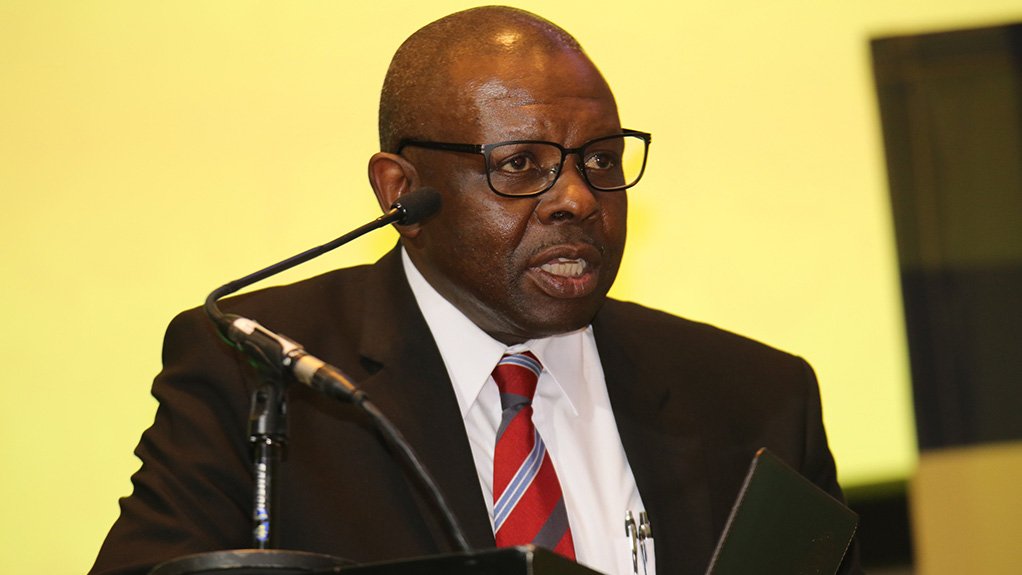While some opposition parties have welcomed the removal of Western Cape Judge President John Hlophe and Judge Nkola Motata from the bench, the Economic Freedom Fighters (EFF) has criticised the impeachment, saying it represents a “systematic attack on the black intelligentsia” in South Africa, orchestrated by a harmful alliance between the African National Congress (ANC) and the Democratic Alliance (DA).
On Wednesday, Hlophe was removed from the bench by a National Assembly vote having been accused of trying to influence the Constitutional Court in a matter related to former President Jacob Zuma.
This marks the first time in South Africa’s democracy that judges have been impeached.
Hlophe had been found guilty of gross misconduct by the Judicial Service Commission (JSC), after which the Portfolio Committee on Justice and Correctional Services recommended his dismissal.
DA Shadow Minister of Justice and Constitutional Development Advocate Glynnis Breytenbach said that the DA had once again been vindicated by the removal of Hlophe after years of the ANC government dragging its feet on his removal.
Breytenbach said that while the DA welcomed the finality of this matter, the party remained concerned that the process to remove Hlophe took over 15 years after the 2008 misconduct complaint was lodged.
“The process was protracted and complex, with extensive investigations, hearings and deliberations by the JSC. We also saw political interference and legal technicalities delaying the process. The process could and should have been dealt with more expeditiously,” she said.
She added that the impeachment of Hlophe, or any judge, had profound implications for judicial integrity in South Africa.
“It underscores the importance of upholding the highest ethical standards, the rule of law, and the Constitution among judicial officers. It also sends a clear message that no one, regardless of their position or influence, is above the law. Moreover, it reaffirms the principle of judicial independence as a cornerstone of democracy and boldly underlines the principle of the Rule of Law,” said Breytenbach.
ATTACK ON JUDICIAL INDEPENDENCE
The EFF said it condemned the “politically motivated” impeachment of Hlophe, calling it a vindictive act by certain elements of the National Assembly and "a blatant attack on judicial independence" and "a betrayal of the public’s trust in the justice system".
The party noted that the proceedings against Hlophe by the JSC have been procedurally unfair, with the judicial conduct tribunal and the JSC overstepping their authority in carrying out their responsibilities.
“The EFF refuses to accept this travesty of justice and condemns the silencing of those who speak truth to power. We stand in solidarity with Hlophe and condemn this attempt to dismantle the gains of the black struggle,” the party stated.
The EFF called on all “progressive forces” to unite and resist what it calls "the insidious attack on judicial independence and the black intelligentsia of South Africa".
REINFORCING CONSTITUTIONALISM
GOOD secretary-general and MP Brett Herron said South Africa’s judicial system was a key instrument for the maintenance of constituionalism's over-arching integrity.
He said where judges who were trusted with ensuring that the rule of law was enduring were found to have broken the law, and had been found guilty of gross misconduct, then there was a duty on the National Assembly to reinforce the principle of constitutionalism and the rule of law.
“That requires us to support the committee’s recommendations in both cases and remove the judges from office,” said Herron.
He added that all people and sectors of society depended on the judiciary’s impartiality and independence to be able to hold the State accountable for its integrity, and the integrity of its administrative decisions.
In this space, judges cannot be viewed as harbouring political agendas, he said.
JUDICIAL ACCOUNTABILITY
Freedom Under Law (FUL) said the outcome of the National Assembly vote was a sad moment for the judiciary, because it marked the first time in South Africa’s democratic history that judges were removed from office for misconduct.
However, it said this was a crucial step in ensuring judicial accountability given the nature of the misconduct committed by both judges.
“It is vital to protecting the integrity of the judiciary, and for public confidence in our judges, that there are serious and meaningful sanctions imposed on judges who commit serious acts of misconduct,” it said.
Whilst the process, in respect of both judges, had taken far longer than it should have and had highlighted many problematic aspects with the process of holding judges accountable, the final outcome was to be welcomed, said FUL.
EMAIL THIS ARTICLE SAVE THIS ARTICLE ARTICLE ENQUIRY
To subscribe email subscriptions@creamermedia.co.za or click here
To advertise email advertising@creamermedia.co.za or click here











